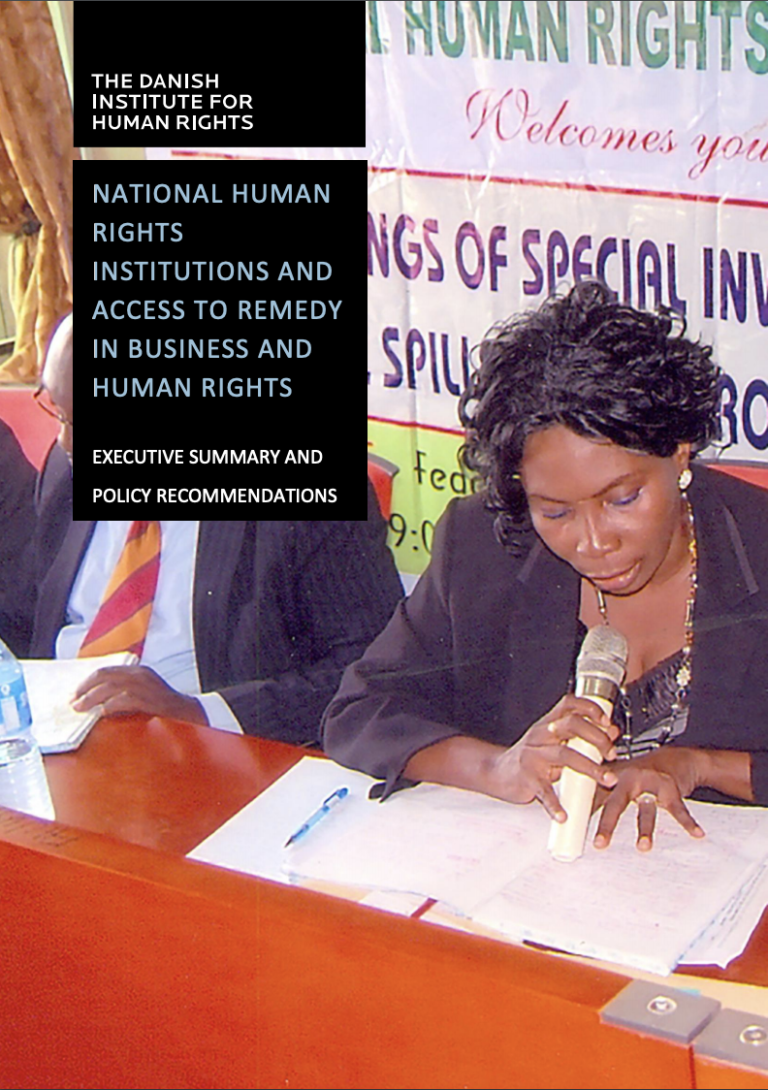This two-part report examines the role of national human rights institutions (NHRIs) in facilitating access to effective remedy in the context of business and human rights (BHR). The primary objective is to identify trends and patterns in how NHRIs apply their Paris Principles mandate to access to remedy in BHR; including to identify common challenges faced by NHRIs and how these might be addressed to strengthen NHRI capacity, action and collaboration to enhance access to remedy for victims of business-related human rights abuses. In doing so, this report seeks to serve as a resource for NHRIs to strengthen their role and to inform current international and national processes that address the role of NHRIs in access to remedy in BHR– such as the United Nations Working Group on BHR 2020 report to the Human Rights Council on the topic, the Accountability and Remedy Project being undertaken by the Office of the United Nations High Commissioner for Human Rights and national-level processes such as National Action Plans on BHR (NAPs).
Part 1 of the report presents an analysis of the role and practice of NHRIs regarding access to remedy in BHR, based on analysis of 2019 survey data gathered by the UN Working Group on BHR, as well as a review of the academic and grey literature relevant to the topic.
Part 2 presents four NHRI case studies from the African region (Kenya, Niger, Nigeria and Uganda) and a comparative analysis examining key practice challenges and recommendations, as well as corresponding opportunities for further research. The four case studies were written in collaboration between the respective NHRIs and the Danish Institute for Human Rights, informed by the documentary analysis of collected and publicly available information as well as interviews with select NHRI staff and relevant external stakeholders.

